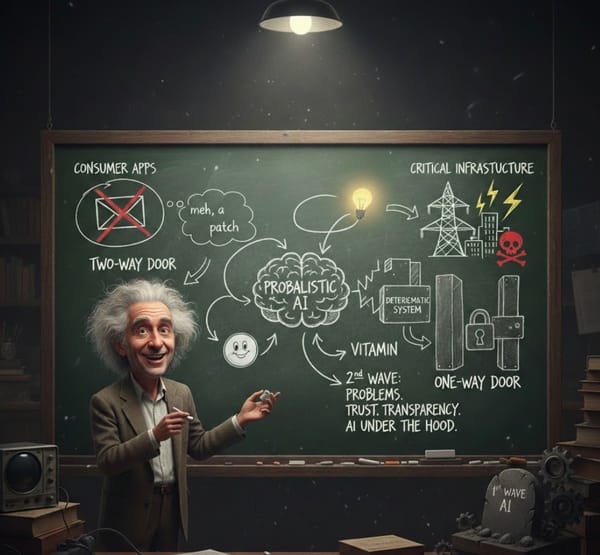The Charging Station - Issue 31
The US-China trade war hits the utility industry
Hi friends,
This week, I’m highlighting stories on China’s participation in the U.S. power grid and how regulators are reacting to it. As you’ll discover, there’s no consistent policy which leaves everyone, pardon the pun, in the dark.
Across nearly 7 million miles of power lines, the U.S. power grid delivers nearly half-a-trillion dollars of electricity annually. Unfortunately, it’s also an aging relic that by some accounts needs more than $1T in upgrades to make it more efficient, reliable, and resilient.
At stake is not only the health of our grid, but the existence of utilities themselves, national security and our ability to grow into a clean energy future.
An opportunity of this size, where incumbents haven’t changed their business models since the first power plant in 1882, entices businesses and investors from all over the globe, including China.
In an under-the-radar move on May 1st, President Trump signed an executive order directing the Department of Energy to produce a list of suppliers in adversarial countries whose equipment should be banned for security reasons, including China.
The move adds to a list of other issues that have strained U.S.-Chinese relations, alongside accusations by each country that the other is responsible for the worldwide coronavirus pandemic and moves to ban Huawei telecom equipment.
In the coming decades, we’re likely to see the adoption of microgrid technologies and connected home energy devices all of which will have some form of access to our grid so having a well-defined national policy here makes a lot of sense. Yet, we’re still a long way from clarifying exactly what that policy looks like and who is responsible for enforcing it.
If you are a startup building hardware in either sub-sector and manufacturing your device in China, these are issues worth watching.
👉 If you enjoy reading The Charging Station, please share it with friends!
Worth Your Time
1.
The Trump administration will not block a Chinese-owned company from building a wind farm in Texas near the Air Force’s largest pilot training base, a person familiar with the decision told Foreign Policy, allowing a project to move forward that lawmakers fear could be used to spy on American troops, disrupt flight routes, and give Beijing a foothold in the U.S. electrical grid.
“This is an economic war….China is looking to invest in anything that can give them a competitive advantage on anything. They want to win this economic war without firing a shot.”
— Deep in the Heart of Texas, a Chinese Wind Farm Raises Eyebrows
2.
It won’t be easy untangling China from the supply chain for U.S. power grids. The country supplies about 90% of the U.S.’s $59 billion of electrical equipment purchased overseas, according to BloombergNEF. The utility sector spent more than $67 billion on equipment in 2017, according to the U.S. Census Bureau.
“If you decompose all the various aspects of the grid system, you will eventually come across some aspect or component that has some ties to China.”
— Trump’s Grid Order Baffles Utilities Over What They Can Buy
3.
Bradley says the power sector is aware China is a security concern, and the North American Electric Reliability Corp. (NERC) is working to boost security through Critical Infrastructure Standards and new vendor requirements. "But nobody was expecting the administration to shortcut all that," said Bradley. "It throws a wrench into what's going on right now."
— Trump's grid security order sows confusion in power sector — but don't expect a quick fix
What I’m Thinking About
“Mental toughness is persistence not intensity.” - James Clear
See you next weekend,
Kevin
Did your brilliant friend forward this to you? Join our community by signing up below:


